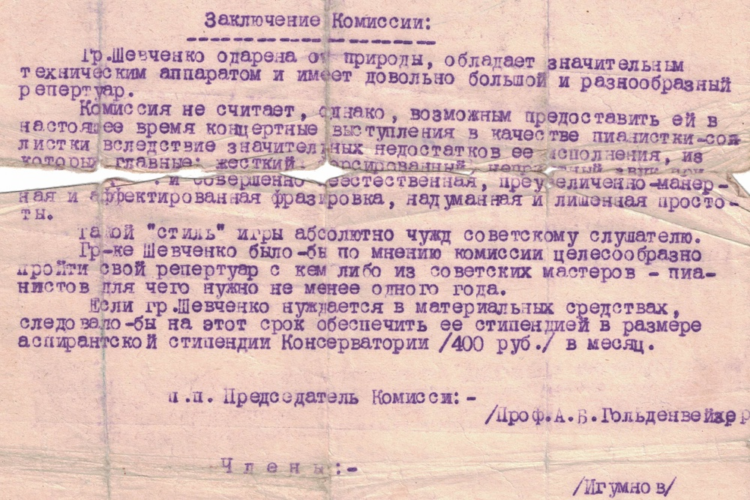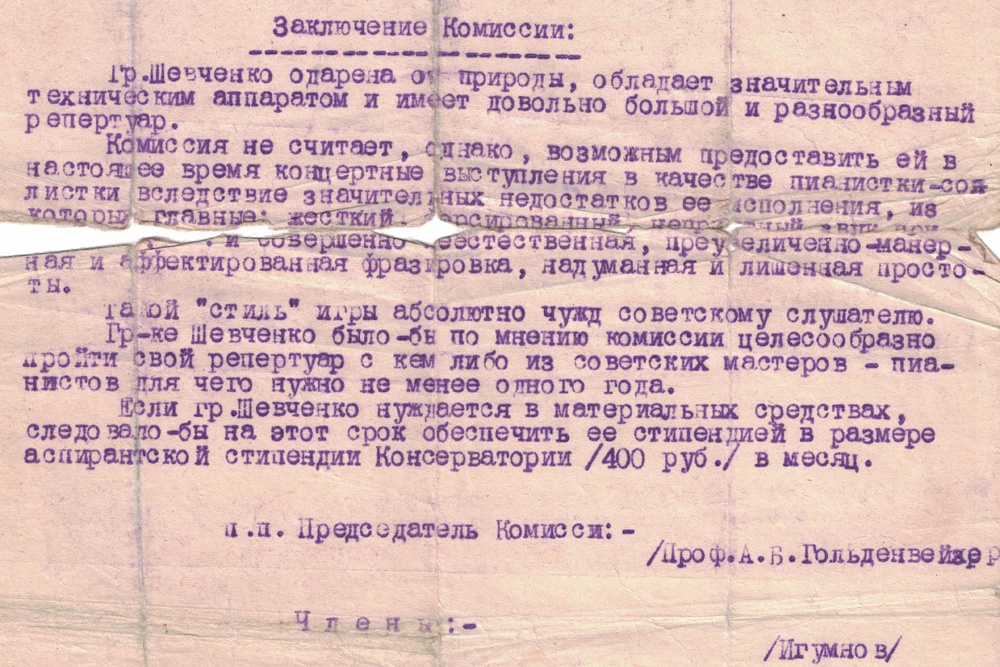The heroine of the French cinema legend Annie Girardot lived in Zlatoust
Published: by .

From Europe to Moscow
Vera Carmen Adelaide Lotar was born in Italy at the beginning of the last century. Her father was a physicist, mathematician, and astronomer, a professor at the Sorbonne, and a lecturer at the University of Turin, and her mother was a philologist.
The girl began studying music at an early age. As an adult, she graduated from the Paris Conservatory and interned at the Vienna Academy of Music, where she fell in love with Bach, Mozart, and Beethoven. She performed extensively in both the New and Old Worlds.
Vera married the Hungarian artist André Falb. However, their love life sprang a leak, and the marriage was short-lived. Her second husband was the Russian émigré Vladimir Shevchenko, an acoustic engineer who designed string instruments. The couple lived in Venice, Rome, and Bologna, but decided to move to the Soviet Union with Vladimir's three sons from his first marriage, though they chose an inopportune time: 1937.
They were greeted coolly in her husband's homeland. The foreign musician performed before a special commission at the Moscow Conservatory, chaired by composer and pianist Alexander Goldenweiser. "Ms. Shevchenko is naturally gifted, possesses considerable technical prowess, and has a fairly large and varied repertoire," the experts acknowledged. But with a fateful caveat: the performer's style was alien to Soviet audiences, so she was advised to "master her repertoire with a Soviet master, which would require at least a year." However, pianist Maria Yudina, who was on the commission, helped Vera secure a job at the Leningrad State Philharmonic.

Conclusion of the Moscow Conservatory commission regarding the audition of Vera Lotar-Shevchenko. June 11, 1938. Photo: United State Archives of the Chelyabinsk Region .
Stop – Zlatoust
At the very beginning of the war, Vladimir Shevchenko was arrested on charges of espionage and sent from Leningrad to a prison in the Southern Urals. His wife and youngest son, Gleb, followed him to Zlatoust (the eldest, Denis, was serving in the Red Army by then, while the middle son, Igor, remained in the city of two revolutions, where he later died).
In Zlatoust, Vera found work as a pianist at the evacuated Oryol Drama Theater. Her employment contract listed her as a composer: she was supposed to "write music" for the play "Crazy Day, or The Marriage of Figaro" and conduct the performance. But men in uniform came for her, too.
The pianist couldn't come to terms with her husband's arrest and, in her correspondence with her son, made critical remarks about the authorities. She expressed similar thoughts in conversation, declaring that she wanted to "shout all sorts of insults at those responsible for her family's misfortune and then, finally, let myself be shot." She also added that she had traveled extensively around the world, but "I've never seen anything like this."
The arrest warrant noted: "She expresses counterrevolutionary, terrorist, and defeatist sentiments and spreads panic-mongering rumors." The Chelyabinsk archives contain the case file against her, which reveals that during her initial interrogation, Vera denied the accusations of counterrevolutionary activity: "I do not consider myself guilty of anything. True, after the arrest of my husband, Vladimir Yakovlevich Shevchenko, my views on the Soviet Union have been shaken."
She was charged under Article 58, but she once again responded as usual: "I deny the charges brought against me, as I did not engage in terrorist talk and did not express my anti-Soviet sentiments to anyone." This result, however, did not satisfy the investigator; the interrogations continued until, a month later, the prisoner fully admitted her guilt.
Vera and Vladimir Shevchenko's sentences were announced one year apart. Vladimir was given ten years in a labor camp. He couldn't cope with the hardships he endured, went insane, and died in the Troitsk psychiatric colony two years after his early release. Vera was sentenced to eight years in a labor camp, although the investigator, as the case file shows, recommended capital punishment. She endured it all.
The quiet music of fate
Lotar-Shevchenko served her sentence in Sevurallag in the Sverdlovsk region. Her only escape during this period was a piano keyboard carved into her bunk with a kitchen knife. In her rare free moments, she "played" this "instrument." Convicts observing her quiet concerts were amazed by her extraordinary devotion to music.
After her release, the pianist was banned from living in large cities. She worked as an accompanist at the Nizhny Tagil Musical Theater, where the aspiring director Vladimir Motyl also worked at the time. He would later portray her in his film "The Captivating Star of Happiness," portraying the Decembrist's wife, Polina Annenkova-Gebl, who also went into exile to follow her beloved.
In 1965, Simon Soloveichik's essay "The Pianist" was published in Komsomolskaya Pravda. This publication made Vera Lotar-Shevchenko famous: she received letters requesting concerts. A year later, at the invitation of Academician Mikhail Lavrentyev, founder of the Siberian Branch of the USSR Academy of Sciences, she moved to Akademgorodok in Novosibirsk, becoming a soloist with the Philharmonic. She traveled extensively throughout the country, making up for the years of forced inactivity. Concert programs of that time featured her favorite names—Bach, Chopin, and Debussy. Vera achieved true triumph by performing all of Beethoven's sonatas, as well as his fifth concerto, with the Novosibirsk Philharmonic Orchestra under conductor Vasily Sinaisky.
Life with Bach is blessed
Vera had the opportunity to return to France several times, but she stubbornly refused. She explained, "It would be a betrayal of the memory of the Russian women who helped me survive the hellish conditions of imprisonment." Her eldest son, Denis, who took the surname Yarov, also achieved fame as a Soviet violin maker.
A documentary film, "We Will Still Live the Real Life," was made about her Dante circles. And in 1989, director Valery Akhadov released "Ruth," in which she became the inspiration for the pianist Marie Lamballe-Bulatova. The role was played by the world-famous French actress Annie Girardot.
Since 2006, Russia has hosted the International Piano Competition in Memory of Vera Lotar-Shevchenko, who was rehabilitated after her death. Soviet documents referred to her as French. Therefore, the monument erected in the Southern Cemetery of Akademgorodok reads: "Born in France. Died in Russia." Below, on the tombstone, are her words: "A life in which Bach is present is blessed."
Comments